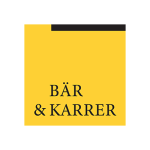Switzerland is an attractive venue for skilled foreign workers. In addition to establishing a domestic employment relationship with a foreign national employee residing in Switzerland, other forms of employment may be considered, such as cross-border assignments, domestic employment contracts with foreign residents or engaging external consultants.
The Covid-19 pandemic has greatly accelerated the already pre-existing trend towards other modern forms of employment, such as home-office working in particular.
Whilst the trend towards more flexible work set-ups has many advantageous aspects, employers' duties and liability exposure in the fields of payroll should not be underestimated.
Tax withholdings, certifications, social security contributions, pension payments, coverage for accidents and related topics may, in negotiations with candidates, be a lesser priority but should be addressed early in the process. Doing so will help to: (i) ensure a compliant set-up for the company and the executive/board member; (ii) properly define functions and places of work; (iii) avoid tax exposures at a corporate level; (iv) ensure adequate coverage of the executive/board member in case of accidents, death, disability and sickness; and (v) avoid liability exposure for the company and its corporate bodies.
Taxation of executive compensation/board members
In view of its wage withholding tax liability exposure, it is crucial for a Swiss employer to clarify an employee's residence status in the context of the first payroll:
A person residing in Switzerland and intending to stay permanently, or a person present in Switzerland for a mostly uninterrupted stay of 30 days with gainful employment establishes a personal tax residence. Such person has an unlimited tax liability in Switzerland and is liable to Swiss taxes on their worldwide income and wealth, subject to applicable double taxation treaties. Such treaties typically allocate the unlimited tax liability to the country where such person has his/her centre of vital interests. International weekly commuters typically do not have their unlimited tax liability in Switzerland if they have their centre of vital interest, i.e. their family, in another country. Where a person is considered a Swiss tax resident, tax withholdings on compensation may be required for non-Swiss nationals, depending on their marital status and type of permit.
A tax limited to Swiss sourced income may, for example, arise due to the exercise of a professional activity in Switzerland or due to membership of the board of a Swiss company. Non-resident employees and board members are, by default, subject to Swiss wage withholding tax, i.e. the company is liable to deduct the tax directly from the gross amount of compensation paid. Whilst tax withholdings on board fees are levied at a flat-rate tariff and apply even if no physical work is performed in Switzerland, withholdings on employment compensation will be levied at progressive rates and will only be due on gross compensation relating to work physically performed in Switzerland.
In light of the above, a Swiss company needs to assess the tariff and the basis of assessment on a case-by-case basis in order to be able to carry out any tax deductions from the salary accurately. The Swiss company is liable for the correct tax withholdings and is also obliged to issue an annual salary certificate reflecting gross compensation and any deductions made. Non-compliance may be punished by a fine, and the recharge of omitted tax withholdings to employees can prove complicated or even impossible.
Individuals who are taxed at source may, depending on meeting certain thresholds or trigger events, be required also to file an ordinary tax declaration in Switzerland. Under certain conditions, such ordinary taxation can also be requested voluntarily although the conditions to do so have been loosened through a recently enacted wage withholding tax reform which came into force as of January 1 2021. As a result of this reform, the system is also more uniformly applied in Switzerland. It is essential to evaluate whether ordinary taxation compares favourably with the wage withholding tax.
Last but not least: the place of work of executives and board members not only has payroll and income tax ramifications but may also affect the corporate tax sphere. If a foreign company has staff and facilities at its disposal in Switzerland, it may be considered as operating a permanent establishment in Switzerland for Swiss and international tax purposes. A share of the profits of the company may then be attributed to Switzerland for taxation purposes.
In addition, when it comes to employing senior employees and members of the board of directors in an international context, further questions have to be raised regarding where the company is effectively managed.
Social security and pension aspects
The social insurance obligation of senior employees and members of the board of directors must also be assessed on a case-by-case basis. Swiss social security contributions are generally triggered when an employee resides and/or works in Switzerland.
To coordinate or harmonise contribution duties in cross-border cases, Switzerland has concluded bilateral social security regulations with a number of states. The regulations with and within the EU provide that social security contributions are due in one state only, this typically being the place of performance of work, if no specific secondment rules apply. Where more than 25% of working time is carried out in Switzerland and/or a member state where an individual also resides, the individual is typically subject to the social security legislation of that state. The treaties with other countries, such as the US, provide for different mechanisms in that social security contributions can be triggered in both states.
In any event, the international social security affiliation rules can lead to unexpected social insurance consequences in Switzerland (or abroad). It should also be noted that, from a Swiss social security perspective, senior employees and members of the board of directors are considered to be employed. This may lead to mismatches with foreign countries where such functions might be treated as self-employment.
Where the compensation payable to senior executives and board members is subject to Swiss social security contributions, Swiss pension fund contributions are typically also triggered. It is necessary to review whether any exceptions apply, e.g. for part-time employment. If pension contributions indeed apply, the insured compensation may differ from the salary applicable for social security and tax purposes.
Non-compliance in connection with social security and pension contributions not only leads to gross-up calculations but the recharge of omitted withholdings to employees can also prove burdensome or even impossible, and a lack of social security or pensions coverage in cases where a benefit would become payable can lead to a company having liability exposure.
Recommendations
When a Swiss company employs executives or board members, it is important for the company to keep (or have that individual keep) reliable documentation such as a comprehensive employment / mandate agreement in writing, a running calendar with days of work in Switzerland as well as an updated certificate of coverage or form A1 for social security purposes and to issue annual salary certificates.
From both a tax and social security perspective, further complexities can arise if net salary agreements or fringe benefits are implemented and where benefits are paid in other jurisdictions or by other group companies under certain employee participation plans or pension schemes.
Any such benefits will need to be reviewed from a Swiss perspective to assess their tax and social security treatment, the correct quantification, the potential need for gross-up calculations and will have to be duly reflected in the annual salary certificates provided by the Swiss employer. It is advisable to involve an experienced local payroll provider – especially when there are not enough resources available in Switzerland to cover this in-house.
Further to the liability risk for the company overall, it is often awkward for the company to request additional amounts to be paid as wage withholding tax or social security/pension contributions from employees who ultimately turn out to have had insufficient withholdings from their salaries.
Furthermore, other usual work-related compliance aspects must be considered and, if necessary, require timely filing such as the necessary applications for a work permit.
Ruth Bloch-Riemer
Partner, Attorney-at-law, Certified Tax Expert, Bär & Karrer
E: ruth.blochriemer@baerkarrer.ch
David Weimann
Associate, Attorney-at-law, Bär & Karrer



